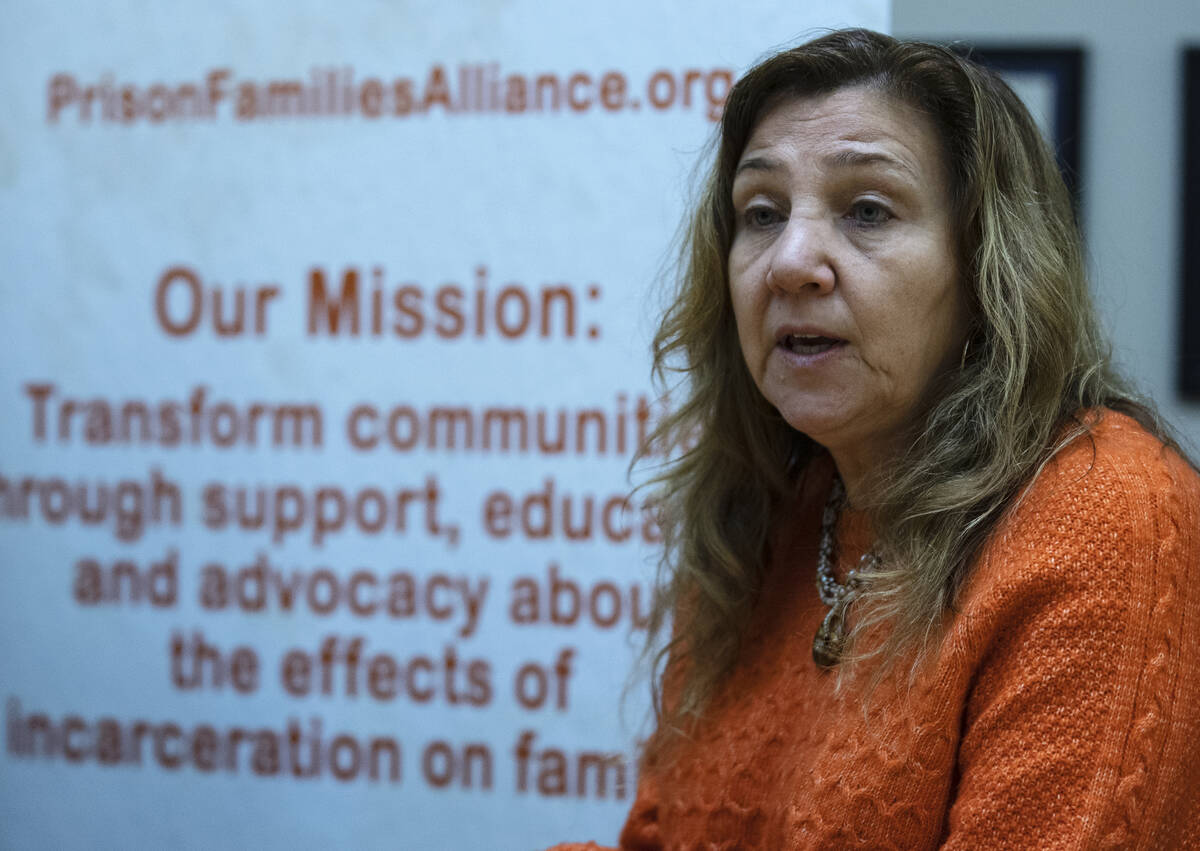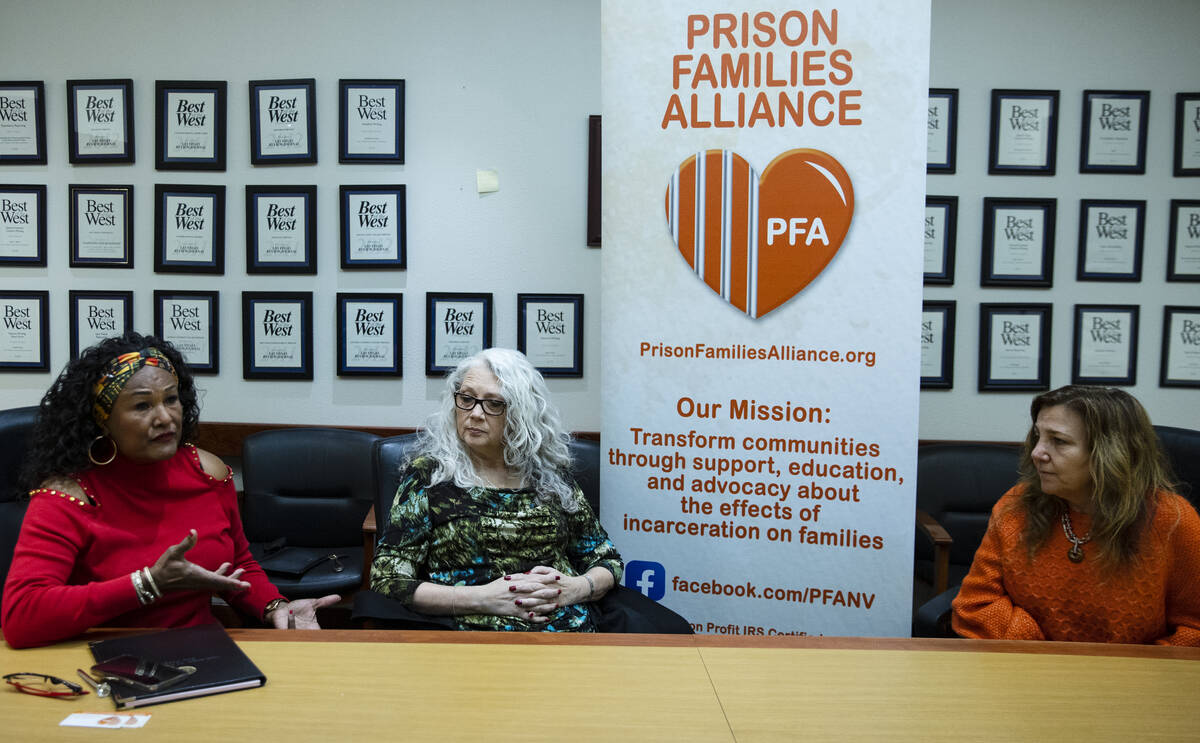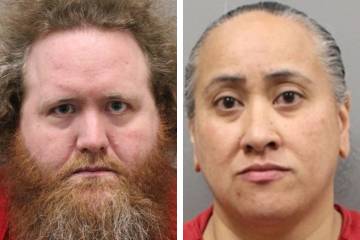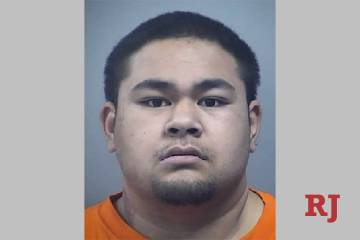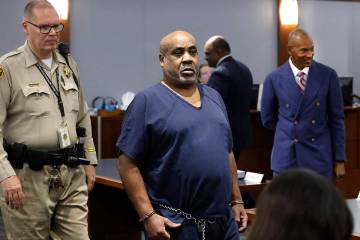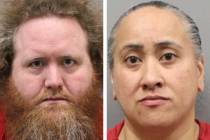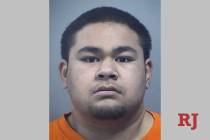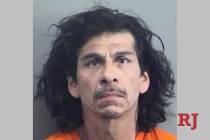Las Vegas-based group offers support to prisoners’ relatives
When Damarys Alicea’s grandson was sentenced to 13 years in prison, no one told her how to prepare.
She didn’t know how to navigate unreliable communication, traveling for visits, or sending money for her grandson to buy food. But her grandson had many years ahead at Valley State Prison in California, so she set out to learn whatever she could about being the loved one of a prisoner.
“I had no idea. It was a shock to all of us how difficult it is to have a family member inside,” Alicea said during a December interview.
When Alicea moved to Las Vegas, her search for a support group led her to Prison Families Alliance. Unlike prisoner-rights advocacy organizations, the nonprofit offers support to prisoners’ families, said Julia Lazareck, the organization’s president.
“There’s a lot of people out there who haven’t experienced anybody being incarcerated,” Lazareck said. “So where do they go? Who do they talk to? There’s not a lot of information for people, and a lot of times they feel alone.”
‘A whole new world’
Prior to the COVID-19 pandemic, the organization hosted frequent workshops and in-person meetings for prisoners’ families. Instead of going inactive once shutdown orders took effect, the group’s membership expanded with online meetings, Lazareck said.
The organization, which had been called the Friends and Families of Incarcerated Persons for nearly 20 years, changed its name in September to reflect a growing group of families they serve outside Nevada, Lazareck said.
Its website covers topics such as what to bring while visiting prison and how to send money or mail to a prisoner. Online meetings hosted by Prison Families Alliance range from general support to groups for relatives of prisoners with mental illness.
“The healthier the family and friends are on the outside, the better they can support their loved one who’s incarcerated,” Lazareck said. “So when they come out, they can be contributing citizens of society.”
Lazareck said she became involved in Prison Families Alliance while her brother was incarcerated in Florida. After her brother died in prison nine years ago from hepatitis C, Lazareck launched herself into helping other families, writing a book and starting a podcast called “Prison: The Hidden Sentence.”
“My thing is really that nobody should go through this alone,” she said. “It’s like a whole new world that people don’t realize, and if you’ve never been through it, you don’t know what to do.”
Encouragement from the outside
Lazareck said families of prisoners need even more support during holiday months, especially in situations where the person incarcerated was the family’s main source of income. Last year, the organization delivered meals and toys to families, and this year they sent gift certificates for people to afford a holiday meal.
“The absence for me is the worst,” Alicea said. “Because you can never get back that time.”
Like Alicea, Christine Essex said the missing seat at the table during holidays and special occasions is the hardest part of having a loved one in prison.
Her son is incarcerated at the Stewart Conservation Camp south of Carson City, where he’s halfway through a three-year sentence.
Essex said she photographs every family event now, from funerals to holiday gatherings.
‘When he does come out, he’ll still feel like he was a part of it,” she said.
Attending Prison Families Alliance meetings helped Essex learn how to advocate for her son, she said. The group helps teach families about the different programs offered for prisoners, who might not know what to do while on the inside.
“Once the system takes them, they’re not ours anymore, there’s nothing we can do,” Essex said. “So we have to be able to give them the resources, the answers and the encouragement from our side.”
Both Essex and Alicea said other families in their situation should keep in communication with their loved ones and talk to them about life on the outside while they are incarcerated. Prisoners with stronger connections to their families have an easier time reintegrating when they are released, Lazareck said.
“There’s not a lot that we can do, (so) just make sure that we’re giving them love and prayer,” Essex said. “Because we do make a difference for their lives, as they do for ours.”
Contact Katelyn Newberg at knewberg@reviewjournal.com or 702-383-0240. Follow @k_newberg on Twitter.
Resources for families of prisoners
Prison Families Alliance can be reached at info@prisonfamiliesalliance.com or 702-763-1389. The organization hosts general support meetings over video call every other week. A full schedule of the organization's meetings can be found at prisonfamiliesalliance.org/calendar/.



